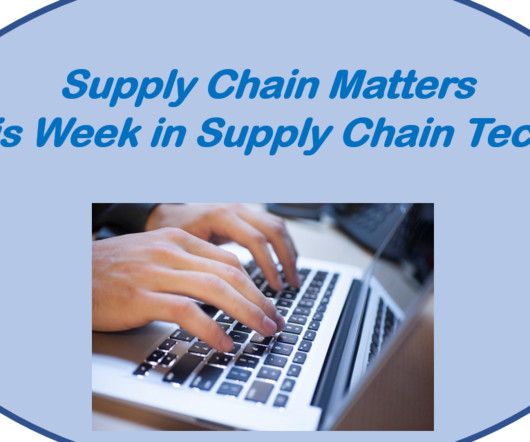Life before load boards
DAT Solutions
AUGUST 14, 2018
Mark Boyer has spent his whole career in the trucking and logistics industry, with a front row seat for all kinds of new technologies, including many products from DAT. As DAT celebrates its 40th year, we reminisced with Boyer, who serves as Vice President of Brokerage for Keller Logistics in Defiance, Ohio.
















Let's personalize your content